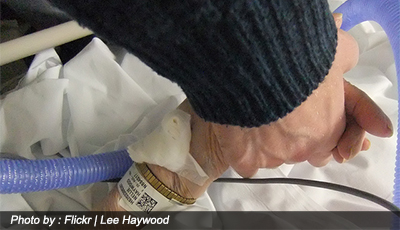
When you see someone who is ill and in pain, with little hope of recovery, what is the first thing you may think about? Most of us would hope for the suffering to go away, or at least, for their agony to lessen. Others among us might want to do anything possible to give them relief from their pain.
Euthanasia, also known as mercy killing, is the deliberate ending of life of a terminally ill person. Assisted suicide is when a mentally competent, terminally ill person is allowed to choose when to end his or her life, with medication prescribed by a doctor.
In public discussions, the opposition to assisted dying (the collective term for euthanasia and assisted suicide) is often framed as a commitment to the sanctity of life versus a belief in the freedom of choice. In Europe, assisted dying is legal – but subject to varying restrictions – in countries such as the Netherlands, Switzerland and Belgium. In the United States, doctors are allowed to prescribe lethal doses of medicine to terminally ill patients in five states: Oregon, Washington, Vermont, Montana and New Mexico. Great Britain’s House of Lords recently debated a proposed assisted dying bill but were split over whether to back such legislation.
Though euthanasia and suicide are illegal in Singapore, there is the Advance Medical Directive (AMD), where an individual can expressly state that doctors should not prolong his life with extraordinary life-sustaining treatment if he has no hope of recovery. As Singapore’s population ages, and with chronic disease becoming a growing cause of disability and death, should the terminally ill be able to plan, and time their own deaths? Would such a move empower individuals, or be subject to abuse?
IPS Special Adviser and Ambassador-at-Large, Professor Tommy Koh will explain why it is time for Singapore to consider a “right-to-die” bill. Bishop Emeritus Robert Solomon from the Methodist Church of Singapore will provide the opposing voice in this debate.
Background Reading
- The Guardian. Coverage of the House of Lords debate and articles on assisted dying.
- BBC Ethics Guide on Euthanasia Singapore Law Review.
- Assisted dying in Singapore – Should we suffer in silence? 30 November 2013
- The Straits Times. Chief Justice Sundaresh Menon’s speech at the Singapore Medical Association Annual Lecture on March 9, 2013. 24 March 2013
- Health Xchange. The New Paper article titled “Spirited life, serene death”. 26 August 2010
